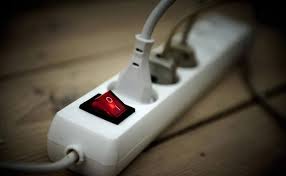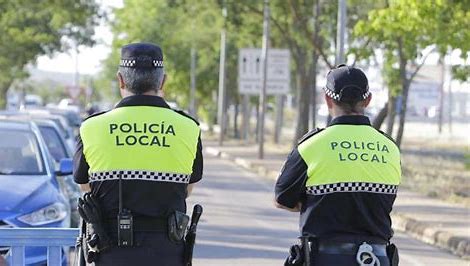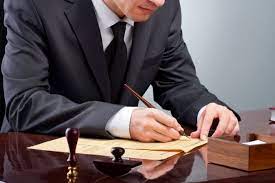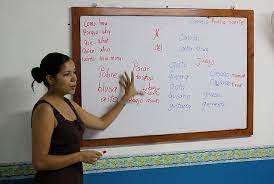 Being enchufado oils the wheels if you live in Spain. If you want to keep abreast of what's going on, if you need to get things done with the minimum of stress and if you want to generally feel good about life here, you need to get “plugged in”.
Being enchufado oils the wheels if you live in Spain. If you want to keep abreast of what's going on, if you need to get things done with the minimum of stress and if you want to generally feel good about life here, you need to get “plugged in”.
Enchufado literally means “plugged in”. It´s similar to being a member of the Old Boys´ Network or being a Mason, except you don´t have to have attended a public school or have a funny handshake.
How to get enchufado
1. Put yourself about by going to local bars or cafés regularly and getting to know the owners and the staff.
 Go for early morning coffee and chat to the locals. Check out my article on this subject. The link is at the end of this article.
Go for early morning coffee and chat to the locals. Check out my article on this subject. The link is at the end of this article.
Find out who the influencers are in your town, village or locality and try to befriend them.
 2. Introduce yourself to the local mayor/mayoress and other local politicians. I know the alcadesa de Ronda, María de la Paz Fernández, whom I met back in 2011 when we were campaigning against the proposed high speed rail line through the valley where we live.
2. Introduce yourself to the local mayor/mayoress and other local politicians. I know the alcadesa de Ronda, María de la Paz Fernández, whom I met back in 2011 when we were campaigning against the proposed high speed rail line through the valley where we live.
I know the alcalde de Montejaque, Diego Sánchez Sánchez, very well, as a result of my various inputs into the village, in terms of tourism, writing for the village magazine, organising activities and general promotion of the village.
I also know the alcaldesas of Benaojan, Fuente de la Higuera and La Indiana. The alcaldesa de Fuente de la Higuera, Alicia López, is also the president of the Asociación de Vecinos and a near neighbour. Not only that she is the Ronda councillor responsible for Culture.
3. Join your local neighbourhood association, Asociación de Vecinos, if there is one. The week we moved to Fuente de la Higuera in 2011, our new neighbours urged us to attend the AGM of the local asociación later that week. It was the quickest way to meet the 50 or so locals who live in that pedanía.
4. Get to know the local police. Easier said than done with three forces to contend with and tricky in a large town like Ronda.
 However, in a small village such as Montejaque (pop. ca. 980), it´s quite straightforward, although the outcome might not be what you wanted. In a small village you only come across the policía local and the guardia civil, because they are part of the community.
However, in a small village such as Montejaque (pop. ca. 980), it´s quite straightforward, although the outcome might not be what you wanted. In a small village you only come across the policía local and the guardia civil, because they are part of the community.
I know two municipales (policia local) very well. They fined me three times in 2021 for parking offences! That amounted to 400€ towards the Police Christmas Ball! Not what was planned!
On the other hand I know a few of the local guardia civil officers based in next-door village Benaoján, as I´ve had to go there a few times regarding registration for tourism lets and a couple of denuncias.
I find them respectful and pleasant.
5. Get to know the editors of local publications. You never know when they might come in useful.
 I know the former editor of SUR in English, Liz Parry, the current incumbent, Rachel Haynes, and the new Deputy Editor, Karl Smallman.
I know the former editor of SUR in English, Liz Parry, the current incumbent, Rachel Haynes, and the new Deputy Editor, Karl Smallman.
I worked for a time some years ago for the editor and proprietor of The Olive Press, Jon Clarke. I know him very well!
I´ve known Juan de Castro, editor of El Hacho magazine (Montejaque) for many years.
6. Similarly, get to know people in local radio and TV. I´m still working on this, but I have made good contacts at Charry TV.
 7. Make yourself known at the local notaries. You never know when you might need them or they might need you. There are two in Ronda: Isabel Colomina Ribas and Gloria Maria Ramos Lizana. I know doña Isabel and doña Gloria and members of their staff well.
7. Make yourself known at the local notaries. You never know when you might need them or they might need you. There are two in Ronda: Isabel Colomina Ribas and Gloria Maria Ramos Lizana. I know doña Isabel and doña Gloria and members of their staff well.
8. Do simple things like be friendly, greet people on the street and in shops and bars, and above all SMILE.
9. And finally, and perhaps most important of all, if you don´t have Spanish, make an effort to learn some.
 There are free courses paid for by the Junta de Andalucía or the Diputación de Málaga or your local town hall. There are, for example, courses in Ronda and Montejaque, and, no doubt, in other municipios.
There are free courses paid for by the Junta de Andalucía or the Diputación de Málaga or your local town hall. There are, for example, courses in Ronda and Montejaque, and, no doubt, in other municipios.
There are also a number of commercial language schools.
***
Getting enchufado brings lots of benefits. Some might say it´s unfair on those who aren't, but, hey, when in Rome …..
Good luck!
Further reading:
Early Morning Coffee
Nota(ry) bene
Being on the box
Police Check
Spain's Three Police Forces Explained and Who Does What
Top 10 tips for learning Spanish